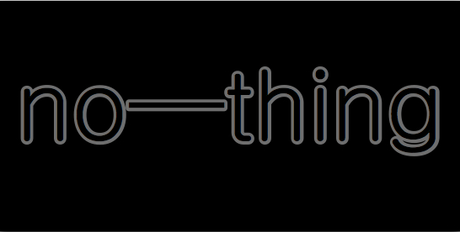
I came about the subject of nihilism the other day and I felt like it either in twine or contradicts itself with atheism. Am sure like many of you and myself you question a deity or you question the meaning of things. I did and here is my though on this.
There is no “cosmic” purpose, but humans are intelligent. We make our own purpose and law, man-made, sometimes imperfect law keeps us in line. The State, kings, and commoners are all answerable to the justice of the law. There’s also a evolutionary benefit to a level of altruism and cooperation. Personal beliefs vary from person to person with religion going along with that. There are often recurring points; but, not everyone believes, fully the same things. Secular nations don’t have objective morality; they have the appearance of objectivity however, it can be barred completely by lack of evidence of the deity or deities which they follow. In that moment, it’s purely human-invented morality. Things like empathy, and some other moral tenants, aren’t unique to humanity, despite the endless romanticism of the species. The thing with atheism is that it isn’t a belief, but instead a lack thereof belief. What someone chooses to believe if you choose not to believe in it. Perhaps we will see the rise of different sects within atheism, as with what happened with Christianity. Nihilism is an answer to a mind that’s only ever known an objective view of things, eventually you’ll realize that that objective view you held so firmly was relative too, so the lack of tangible meaning doesn’t matter. Now nihilism would be what a robot would arrive at and at least atheists still believe in humanity I think. Life is inherently pointless, we give it meaning by assigning it purpose that is worth something to humans. With the ideas of nihilism and atheism, morality is established by society and culture, not the individual. An individual can find they can’t live by the standards of the culture, they can remove themselves from that culture, or the culture will remove that individual from society.
A issue I have with atheism is that belief in Not-God requires just as much faith as belief in God. No atheist can prove that the universe created itself or was created by a almighty NEENFC (Non-Eternal Entity No First Cause) or is cyclical and sustained by an immense being that creates and obliterates the energy needed for such a thing to be possible. Take The Seventh Seal for instance, or Andrei Tarkovsky films. As man might try, religion remains something intractable in his mind. Chaos does not come with atheism as man does not lose his morality along with his religion. What’s more, the loss of morality is a reflection of a deliberate pursuit into the minds of people. Media for example teaches obedience through fear, leading to citizens who see fear as powerful. So in thus, when dealing with things, immorality thrives as that was how they were taught. In a state that teaches its citizens to revere and love order by exemplary laws and national pride morality thrives. Thus spirituality is a personal satisfaction, morality is grouped satisfaction.
Now I have met a few atheist both young and old and a true atheist doesn’t simply deny the existence of god. A true atheist denies the very possibility of holding any sort of religious belief whatsoever, positive, negative, or agnostic.
It is impossible to even have an coherent opinion on the question and ask a true atheist if he believes in god and the only response he can give is a snort and condescending smile. Where does this put science in this matter? It presupposes that the world is ordered and structured in an intelligible way. Science presupposes that everything operates in accordance with cause-and-effect. Science presupposes that these causes are constant and time-invariant in the way they operate, otherwise you couldn’t depend on your observation to confirm or falsify a hypothesis or use it to make future predictions. Science also presupposes mathematics can accurately depict reality, in the construction of its models and measuring instruments.
Now I have come to a conclusion regarding the universe which is there are three possibilities for the the existence of the universe. It is un-caused, self-caused and caused. The universe cannot be un-caused since it exists. It cannot be self-caused since it would have to first “not exist” in order to need causing. Yet, it would still have to exist in order to have the ability to cause. It is absurd to conclude that the universe was in a state of existence and non-existence in order to cause it’s own existence. A friend of mine once told me that he believed the universe was un-caused, and has always existed. My question is that is if it’s acceptable to have an un-caused universe, why would it not be acceptable to have a creator that is un-caused? So now imagine a member of the scientific community argues for the eternal existence of the universe, don’t they commit the same fallacy as the theologian who argues for the eternal existence of God?
Through all this philosophy has provided something. Science has all sorts of philosophical presuppositions for example absurdism and is itself based on the philosophy of empiricism. Science is itself ethically neutral; we require philosophy to tell us when to use a nuclear weapon and when not to do so. For example the doctor who saves a life does so because he operates on the philosophy that lives should be saved and science should be trusted. In the end I think that philosophy is the basis of science.

